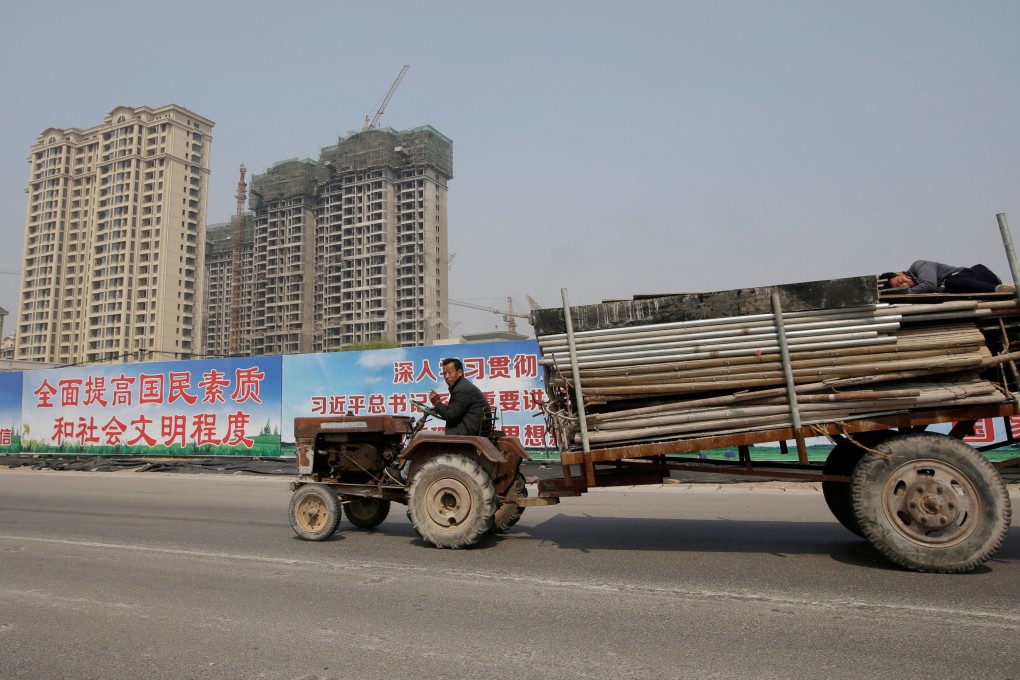Advertisement
China’s runaway house prices may ease as centralised land sale forces developers to curb spending spree
- Developers will be forced to rethink their acquisition plans as land will be sold only three times a year under the new system
- Land sales in China rose 15.9 per cent last year to 8.4 trillion yuan (US$1.3 trillion), with many plots fetching record prices
Reading Time:3 minutes
Why you can trust SCMP

Home prices in China that have risen for 35 months in a row could ease following the newly adopted centralised land auction scheme across major cities in the country.
The move will prevent developers from going on a land buying binge because land will be sold only thrice a year under the new scheme, market observers said. Most of the heavily indebted and cash-strapped developers are likely to consider using their funds judiciously and this would eventually drive home prices down, they added.
“The centralised scheme will make developers more rational as you have to pay huge deposits if you want to acquire a lot of land in one of the three auctions,” said Cristiano Cui, managing director of mainland developer Modern Land (China). “This will force developers to only go for the most desired parcels of land and drop out of the other auctions.”
Advertisement
The central government is standardising the auction of land usage rights by local authorities, eschewing the current random process where municipal or provincial governments can call for tenders – and compete with each other – whenever they need to plug a revenue deficit.
As many as 22 city governments including Beijing, Shanghai and Shenzhen will abide by this schedule, according to a notice by the Ministry of Natural Resources in February.
Advertisement
The new system presaged further tightening measures unveiled by Premier Li Keqiang, who signalled more efforts were in store to steady home prices. Last week, China’s top banking regulator Guo Shuqing also expressed concerns about a bubble in the domestic property market.
Advertisement
Select Voice
Choose your listening speed
Get through articles 2x faster
1.25x
250 WPM
Slow
Average
Fast
1.25x
